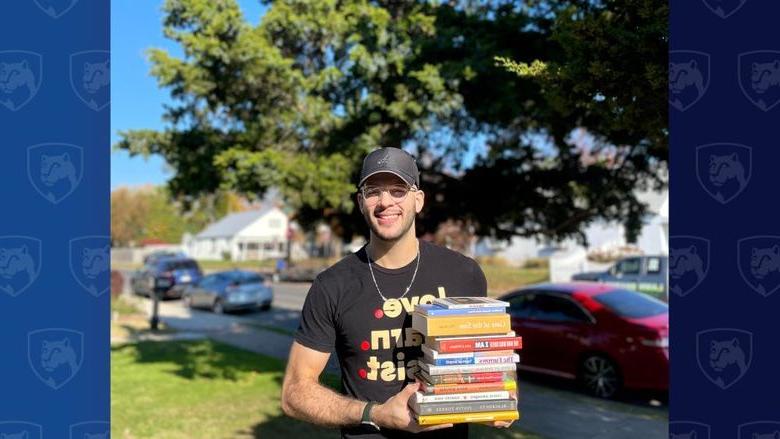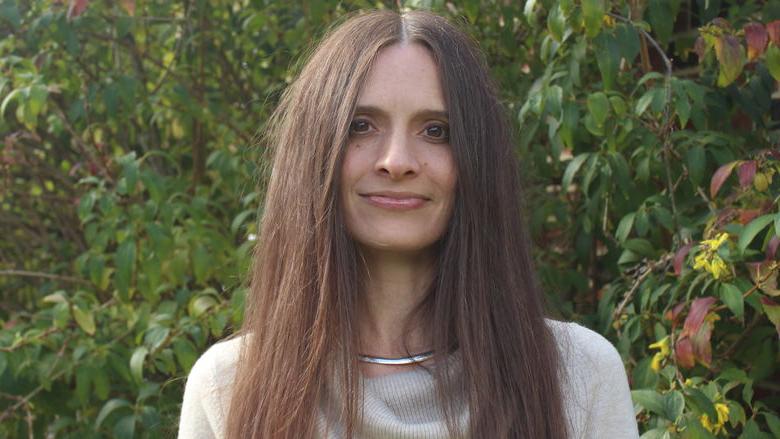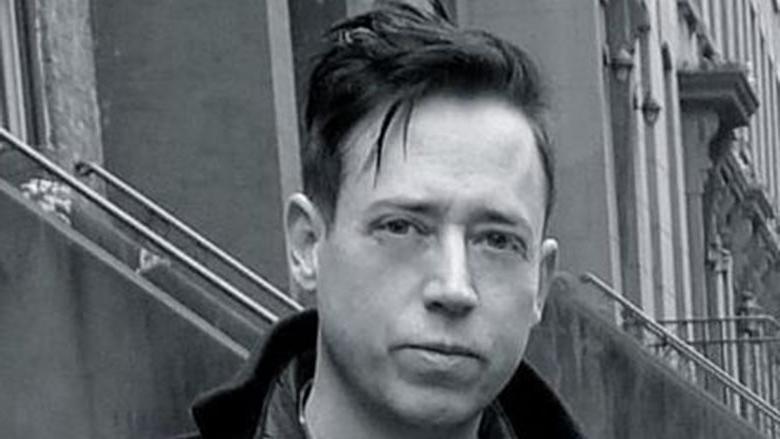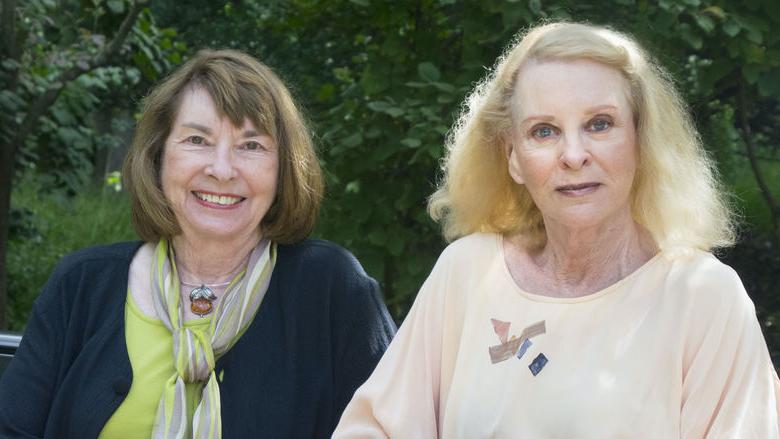Fall 2020 Course Descriptions
English Program and Writing Program
Penn State Abington
English Major Requirements: Abington offers two English majors, each with different requirements. Please use your LionPath "Academic Requirements" to confirm which major you are enrolled in and which degree requirements you need to fill. Requirements for each major and courses that fill these requirements are listed below.
Traditions of Innovation
- ENGL 200 or 201: ENGL 201
- Medieval through Sixteenth Century: ENGL 440
- Sixteenth Century through Eighteenth Century: ENGL 440
- The Nineteenth Century: ENGL 453
- Twentieth Century to the Present: ENGL 435, ENG 401
- Literature, Writing, or Rhetoric: ENGL 050, ENGL 140H, ENGL 184, ENGL 208N, ENGL 215, ENGL 222, ENGL 224N, ENGL 414, ENGL 419, ENGL 420, ENGL 435
- Diversity: ENGL 453
- Senior Seminar: ENGL 487W
Writing and Literature in Context
- ENGL 200 or 201: ENGL 201
- Pre-1800: ENGL 440
- Post-1800: ENGL 401, ENGL 435, ENGL 453
- Literature, Writing, or Rhetoric: ENGL 050, ENGL 140H, ENGL 184, ENGL 208N, ENGL 215, ENGL 222, ENGL 224N, ENGL 414, ENGL 419, ENGL 420, ENGL 435
- Diversity: ENGL 453
- Senior Seminar: ENGL 487W
Writing Minor Courses: ENGL 050, ENGL 215, ENGL 414, ENGL 419, ENGL 420
ENGL 050: Introduction to Creative Writing (GA)
Section 001, 002
Professor Heise
Want to write, but aren’t quite sure how to get started or what to write about? This course is meant to ignite your interests, hone your skills, and introduce you to the foundational elements of poetry, fiction, and creative nonfiction so as to set free your imagination. You will learn to craft images, music, lines, and narrative in the poetry we practice. In fiction, you will learn how to create characters, develop themes, modulate tone and atmosphere, plot a conflict, and manipulate setting. And you will learn to translate and reconstruct personal experience, memory, and research into arguments, scenes, and narratives for creative nonfiction. Along the way, our conversations will turn to the writing and revision process, to why one writes in the first place, and to age-old inexhaustible questions, such as, what are the functions and purposes of poetry, short story, and the essay, what is the difference between truth and fact, and what are the ethics of writing about our own lives and the lives of others. In this course, you’re a writer. And that means you will be writing all the time in an exercise of imagination and perseverance. ENGL 50 welcomes all students interested in creative writing: no previous creative-writing experience is necessary.
ENGL 140 Honors: Contemporary Literature (GH)
Section 001
Professor Naydan
ENGL 140 is an Honors survey course that invites students to study contemporary literature, which we will define as literature written since roughly 1989, when the Berlin Wall fell and the Cold War ended. To ground our consideration of this period, we’ll focus on texts written by American authors and by authors from other nations who have written about American culture, American values, and American historical events such as the terrorist attacks of 9/11 or the Black Lives Matter movement. Authors will likely include, for instance, John Barth, Alison Bechdel, Don DeLillo, Junot Díaz, Mohsin Hamid, Jhumpa Lahiri, Claudia Rankine, Kristen Roupenian, Gary Shteyngart, Zadie Smith, and David Foster Wallace. Through reading, discussing, and writing about contemporary authors, we’ll familiarize ourselves with aesthetic and rhetorical features of novels, novellas, short stories, poems, essays, and multi-genre texts that prioritize the interplay of image and text. We’ll also develop an understanding of pressing issues that have come to define our turbulent contemporary times, for example those involving race, class, gender, sexuality, nationality, faith, terror, xenophobia, digitization, and globalization.
ENGL 184: The Short Story (GH)
Section 001
Professor Linda Miller
Throughout time people have told stories in order to comprehend themselves and their history, or simply for the pure joy of recreating mutually felt human experiences. Such storytelling began within an oral tradition and then assumed a written literary form. Edgar Allan Poe (an American writer during the early 19th century) was probably the first to define the short story as its own literary genre, and stories written since Poe’s time might be judged by his succinct definition. A tale should be short enough to read in one sitting, he said, and artfully structured so as to create a unified impression. This class will consider the major short story writers of the 19th and 20th centuries, with a primary focus on those 20th century writers (many of them American) who have been the most influential in shaping this genre. We will consider the historical and cultural contexts for these stories while primarily analyzing them on their own artistic terms. What do these stories have to say about what it means to be human, and HOW do they go about saying it? The sophisticated textual critic will consider all facets of each story’s structural form in order to determine its predominant themes. Lectures and class discussions will assist students in developing their reading and interpretive skills, and students will be graded on their ability to communicate these interpretations both orally and in writing. (Not that this course is stacked with ENGL 435, so students can’t take both courses.)
ENGL 201: What is Literature (GH)
Section 001
Professor Rigilano/p>
What is literature? Is it an objective category to which all writing with verifiably “literary” quality belongs? If so, in what does the “literary” consist? Or is it rather that literature names an ideological category that serves the interests of power? Or perhaps literature is the name we give to writing that produces a particular aesthetic experience in the reader? In asking these questions — and many more — this course seeks to introduce students to key concepts in literary theory and literary history. Students will engage with a wide variety of texts and genres, from ancient tragedy to conceptual poetry.
ENGL 208N: The Music of the Beatles and American Popular Culture
Section 001
Professor De Piero
John. Paul. George. Ringo. The Beatles are arguably the most important band in music history. Their work is derived from a wide range of diverse sources: the blues, rock’n’roll, country, Motown, soul, folk, 50’s rock, and European and Indian classical music traditions. Two ideas define their work: an emphasis on freedom, and how song texts can be interpreted in different ways. Their albums mirrored changing trends in culture, from the pre-Vietnam War youthfulness of A Hard Day's Night, to the psychedelia of Revolver and Sgt. Pepper’s, to the countercultural mindset of The White Album. This inter-domain course will enhance the appreciation of the Beatles and their music through its interdisciplinary focus, contextualizing the Fab Four's work in order to show how both popular music and culture can influence one another. Our readings, videos, activities, and projects will draw on a range of sources, including English literature, scholarly publications, and mainstream media.
ENGL 215: Introduction to Article Writing
Section 001
Professor Cohen
Penn State Abington students are active members in their communities, and they bring valuable perspectives and ideas to confronting issues in those communities. ENGL 215 is a course that will give students the opportunity to voice those perspectives as they research, compose, edit and publish articles for a forthcoming news magazine. Over the course of the semester, students will be asked to write and submit for publication two well-researched articles on the issue(s) of their choice. Students have options for contributing articles on a range of subjects, including current events and issues both at Abington and in the larger Philadelphia area and opinion pieces like film and book reviews. If you like to write, are interested in learning and writing about current events, and want to see your work published, ENGL 215 is the place for you.
ENGL 222: British Literature from 1798 (GH)
Section 001
Professor Walters
In this course we will read literature written from the late-Romantic Period to the present day. This broad time period was a turbulent era in British history! We begin with the literature written in the traumatic aftermath of the French Revolution, and we will also read texts grappling with the unprecedented industrial revolution and the dramatic, violent expansion of the British Empire. Throughout this course, we will gain an appreciation of the important historical and cultural contexts that shaped the creation of many literary texts that have come to constitute the so-called English literary canon. We will examine many genres of literature, including poems, plays, novels, and essays, and we will discuss these texts as both the products and producers of culture at large. Given this, our readings will be framed by a series of reoccurring questions in this course. We will ask what, precisely, is considered “literature” at a given historical moment—and why? We also will consider how literature attempts to narrate individual and collective subjectivities—like that of the self, or the nation. Other related issues that we will examine in this class include the rise of the novel form, the role of the writer, the rise of the female author, and the growth of the British Empire.
ENGL 224N: Authors and Artists (GH and GA)
Section 001
Professor Ellen Knodt
Authors and Artists explores links between writers and artists, including fiction inspired by visual artists, illustrators of fiction, pop culture including music and fiction, and comics and graphic novels. Literature and art connections in the course will include many American favorites like Washington Irving's "Rip Van Winkle" and "The Legend of Sleepy Hollow" reflecting the influence of the Hudson River School of landscape painting. Stephen Crane's stories create in language what Impressionist painters accomplished in art. Kate Chopin depicts artists of several kinds. Ernest Hemingway famously said that he wanted to write the way Cezanne painted, and F. Scott Fitzgerald reflects the Roaring Twenties in style and song in The Great Gatsby. Graphic novels and memoirs make us feel and see in new ways, and, of course, Marvel comics entertain us and inspire film scripts..
ENGL 401: Studies in Genre (American Crime Fiction)
Section 001
Professor Heise
This is a course on American crime fiction. As a “stacked course,” students may enroll in the course as ENGL 401 (Studies in Genre) or as ENGL 487W (Senior Seminar). While the assignments and expectations will differ between ENGL 401 and 487W, the content of the course is the same. This course is designed to introduce you to American crime fiction of the twentieth and early twenty-first centuries. Far from merely an escapist literature, crime fiction offers a complex response to the difficult, contradictory experience of modernity. It is a literature of profound moral ambiguity. And it is a genre that is as deeply political as it is entertaining and disturbing. The course will map this popular genre from the 1920s to the end of the century and beyond by attending to its diversity, by situating the literature within historical context, and by anatomizing how it represents ideological conflicts over crime, justice, inequality, and city life. As we make our way through the semester, we will discuss issues that this literature dramatizes, such as, the representation of alienation, anonymity, and the metropolis; the violence of American individualism; the policing of working-class and ethnic culture; and crime fiction’s cultural politics and its challenge to ‘high’ and ‘low’ cultural demarcations. In addition to the primary literature, the course will engage theoretical and historical texts, which will aid in framing the genre within ongoing debates over its origins, its politics, its literary status, and its audience. (Note that this course is stacked with ENGL 487W, so students can’t take both courses.)
ENGL 414: Biographical Writing
Section 001
Professor Pack
Biographical writing typically focuses on the story of someone’s life written by someone else. In our English 414 we will explore the “writing of lives” through readings within the genre including, but not limited to, Anne Frank, Erik Larson, Malcom X, Norman Mailer, Zora Neale Hurston, David McCullough, Grant Wood, Marie Curie, and President Barack Obama.Additionally, students will write 3 pieces: an autobiography in the form of a memoir, a biography of a person he/she/they admire, and a biography of an event or place. Students will be able to choose their subject matter and will be shown proper research techniques used in writing biographies.
ENGL 419: Advanced Business Writing
Section 001
Professor Archer
Building upon the fundamentals learned in ENGL 202D, this course offers students who are majoring in fields related to business the opportunity to further develop their professional writing skills. Students address specific and real-world problems in a more research-intensive manner, demonstrate their capacity to effect positive social and environmental change in their communities and in the world at large, and engage in more advanced document design and automation. This course fosters and promotes independent research and study, and it affords students the opportunity to gain valuable experience writing for the web and presenting orally to professional and corporate audiences. Please note that this course is a “stacked” course this term, which means that it coincides with ENGL 202D, Section 004 but adheres to a more rigorous set of writing demands.
ENGL 420: Writing for the Web
Section 001
Professor Cohen
In this special section of ENGL 420, student editors will be tasked with building and maintaining the site for a digital news magazine. In addition to producing content, students will build writing and digital media skills as they engage in the editorial process with both multimedia and alphabetic work produced by students in ENGL 215, contribute original content of their own, and solicit new content from other campus constituencies. As part of this work, students will critically engage with the ethical complexities of the circulation of digital media and the power of publication in shaping public opinion. Editors in this experience-based learning project can expect to see their work published and list their selection for this position in both job and graduate school materials.
ENGL 435: The American Short Story
Section 001
Professor Linda Miller
Throughout time people have told stories in order to comprehend themselves and their history, or simply for the pure joy of recreating mutually felt human experiences. Such storytelling began within an oral tradition and then assumed a written literary form. Edgar Allan Poe (an American writer during the early 19th century) was probably the first to define the short story as its own literary genre, and stories written since Poe’s time might be judged by his succinct definition. A tale should be short enough to read in one sitting, he said, and artfully structured so as to create a unified impression. This class will consider the major short story writers of the 19th and 20th centuries, with a primary focus on those 20th century writers (many of them American) who have been the most influential in shaping this genre. We will consider the historical and cultural contexts for these stories while primarily analyzing them on their own artistic terms. What do these stories have to say about what it means to be human, and HOW do they go about saying it? The sophisticated textual critic will consider all facets of each story’s structural form in order to determine its predominant themes. Lectures and class discussions will assist students in developing their reading and interpretive skills, and students will be graded on their ability to communicate these interpretations both orally and in writing. (Not that this course is stacked with ENGL 184, so students can’t take both courses.)
ENGL 440: Studies in Shakespeare
Section 001
Professor Nicosia
Explore the twisting comic plot of Twelfth Night, the politics of sex, power, and religion in Measure for Measure, the villainy of Macbeth, and the troubled reign of Richard II. This course is designed to deepen students’ knowledge of Shakespeare’s works through the study of the genres in which he wrote: comedy, history, tragedy, and romance. As we read Shakespeare’s plays, we will also consider how they engage with social and political issues of Shakespeare’s time as well as our own. This course will fulfill either the Medieval-Sixteenth Century OR the Sixteenth Century through Eighteenth Century requirement in the English major. It cannot count for both. Consult with your advisor about how to fulfill your early British literature requirements.
ENGL 453: The Victorian Novel
Section 001
Professor Walters
In this course we will read a wide variety of novels composed during the Victorian era, a period marked by radical social upheaval and cultural change. This era witnessed the abolition of transatlantic slavery, the violent expansion of the British empire, the industrial revolution, and a marked shift in the status of the woman. These monumental events also influenced the creation of some of the most canonical works of British literature. Given this, throughout our readings in this course we will consider these social factors that helped actively to form the nineteenth-century novel. We will read a variety of novelistic genres, such as the romance, the sensation novel, the science fiction novel, and the gothic text. We also will examine the conventions of Victorian novelistic prose, itself, in this class. As we consider the novel form as a genre, we will evaluate how its attendant thematic devices, such as point of view and narration, underpin—and sometimes disrupt—the conventions of novelistic realism. This course will fulfill the diversity and nineteenth-century requirements of the English major.
ENGL 487W: Senior Seminar (American Crime Fiction)
Section 001
Professor Heise
This is a course on American crime fiction. As a “stacked course,” students may enroll in the course as ENGL 401 (Studies in Genre) or as ENGL 487W (Senior Seminar). While the assignments and expectations will differ between ENGL 401 and 487W, the content of the course is the same. This course is designed to introduce you to American crime fiction of the twentieth and early twenty-first centuries. Far from merely an escapist literature, crime fiction offers a complex response to the difficult, contradictory experience of modernity. It is a literature of profound moral ambiguity. And it is a genre that is as deeply political as it is entertaining and disturbing. The course will map this popular genre from the 1920s to the end of the century and beyond by attending to its diversity, by situating the literature within historical context, and by anatomizing how it represents ideological conflicts over crime, justice, inequality, and city life. As we make our way through the semester, we will discuss issues that this literature dramatizes, such as, the representation of alienation, anonymity, and the metropolis; the violence of American individualism; the policing of working-class and ethnic culture; and crime fiction’s cultural politics and its challenge to ‘high’ and ‘low’ cultural demarcations. In addition to the primary literature, the course will engage theoretical and historical texts, which will aid in framing the genre within ongoing debates over its origins, its politics, its literary status, and its audience. (Note that this course is stacked with ENGL 401, so students can’t take both courses.)





